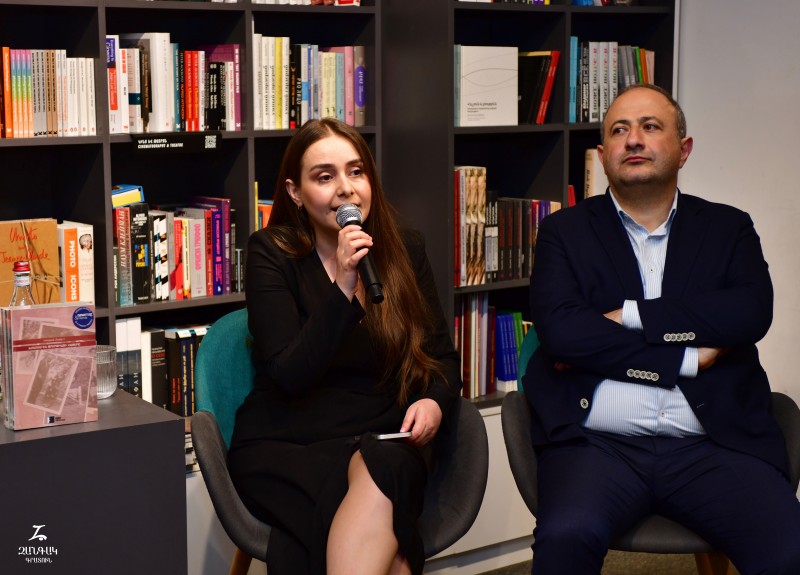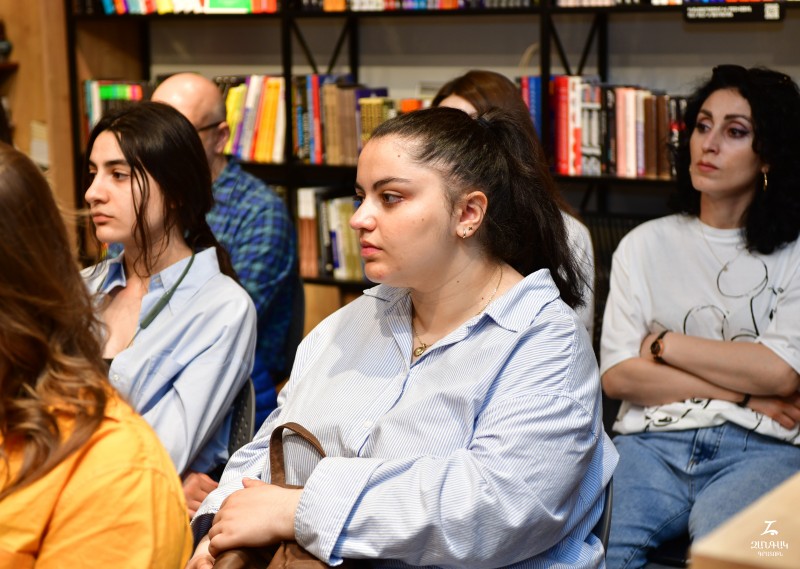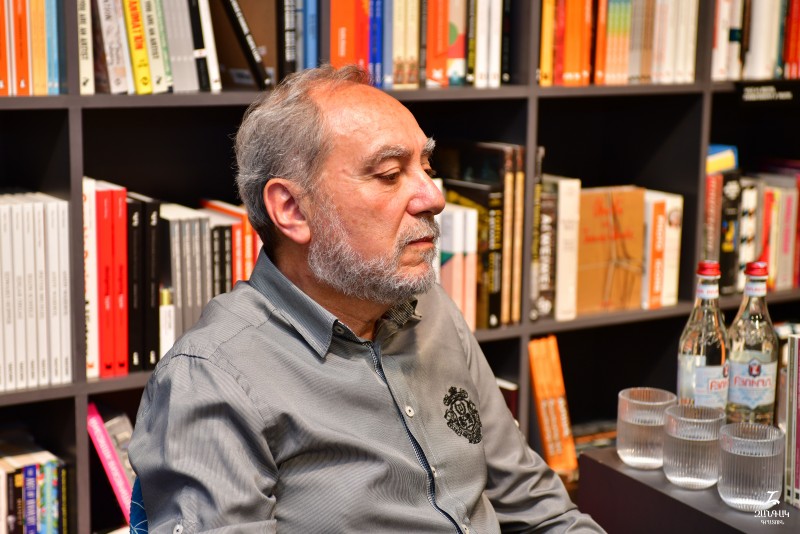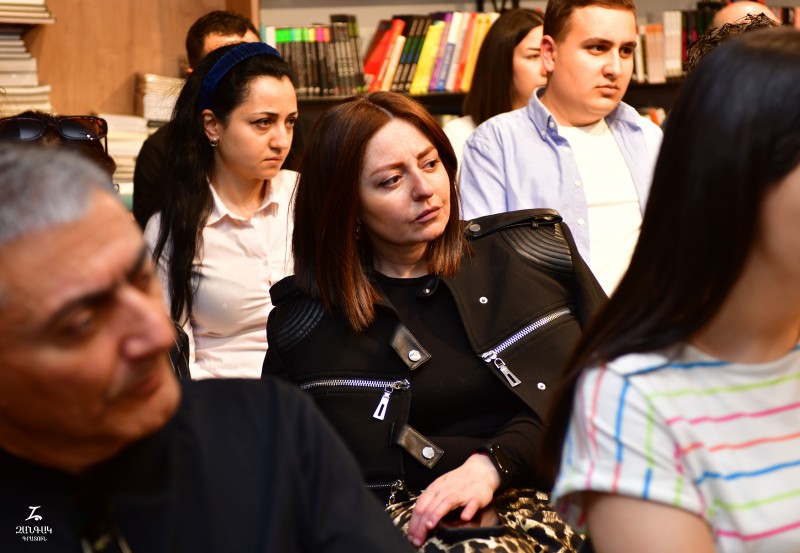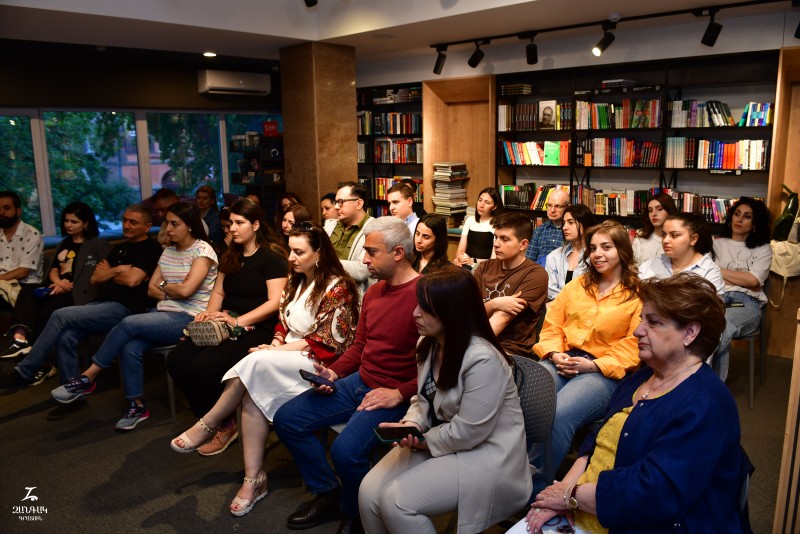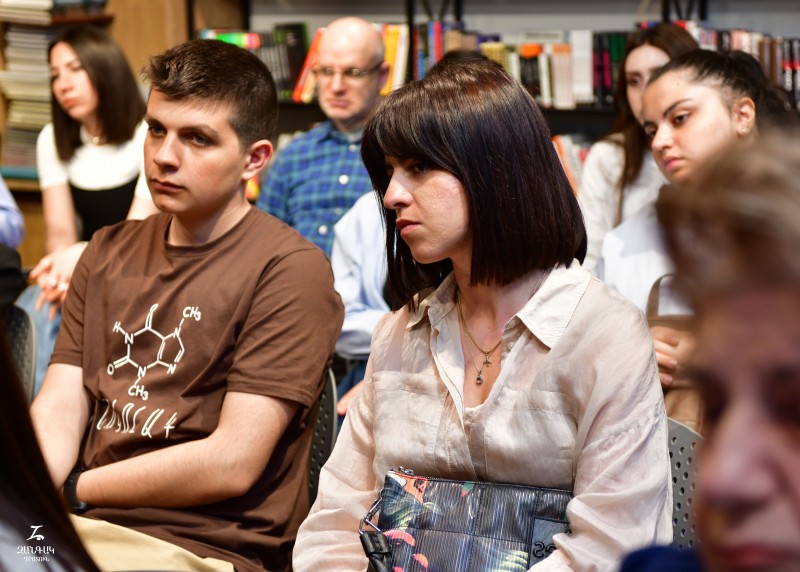A discussion on "Genetic Traumatic Memory" was held in the "Zangak" bookstore (photos)
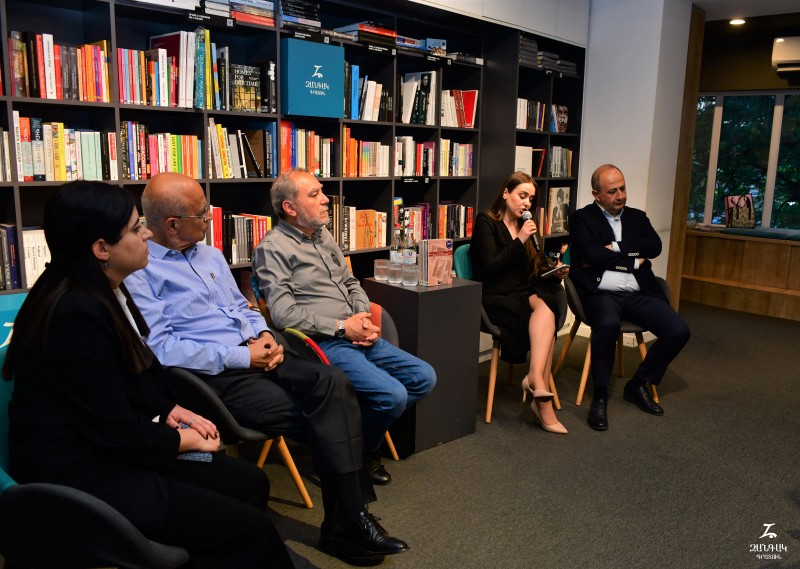
A discussion on "Genetic Traumatic Memory" took place at the "Zangak". The impetus for this discussion stemmed from the exclusive documentary collection of the "Hrant Dink" institution, presented by Newmag & Friends. The "Hrant Dink" institution meticulou
Before the discussion commenced, the speakers referenced Turkish President Erdogan's statement, wherein he urged to "set aside the unsubstantiated memories of the Armenian Genocide, allowing Armenia to break free from the darkness imposed by the Diaspora and embrace new beginnings for a brighter future."
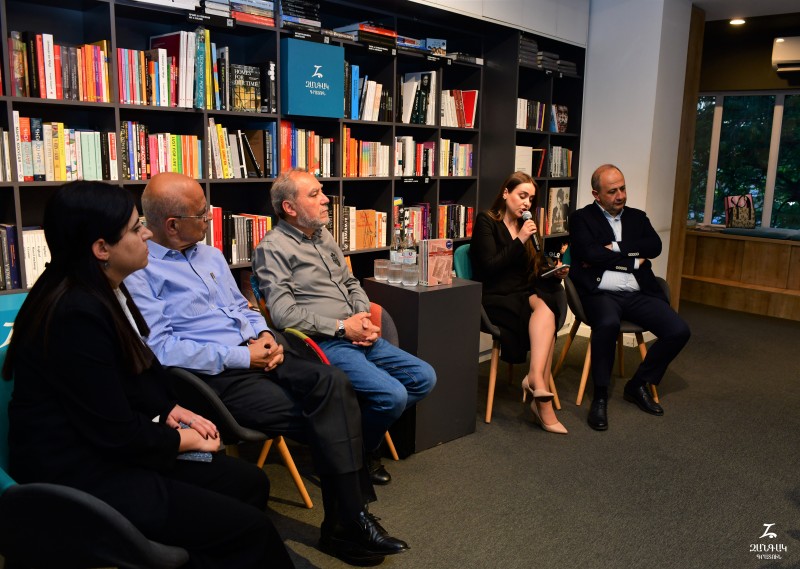
Professor Ruben Melkonyan, Dean of the Faculty of Oriental Studies at YSU and Doctor of Historical Sciences asserts that this statement by Turkish President Erdogan is a reaffirmation of Turkish denialism, employing a more severe approach. He describes it as an affront to the millions of Diaspora Armenians. "Erdogan suggests that Armenia, along with its current leadership, must break free from the influence of the Diaspora, which he portrays as leading into darkness. Essentially, he accuses the Diaspora, and by extension, several million individuals, of being narrow-minded and embracing darkness. It is a grave insult to those millions, particularly considering that the Diaspora largely emerged as a consequence of the Armenian Genocide."
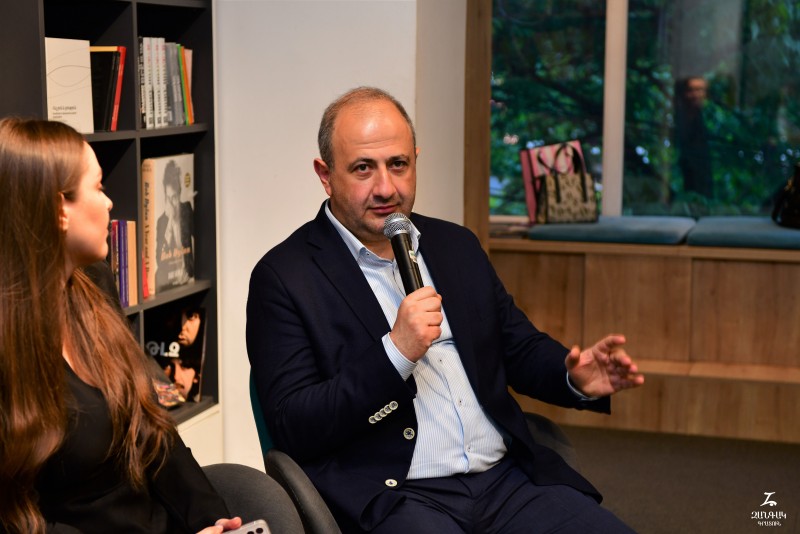
Turkologist Tiran Lokmagyozyan has observed a notable shift in the rhetoric of Turkey and Erdogan over time. Erdogan, who once acknowledged the mistakes of Turks and expressed a sense of shared responsibility, has undergone a transformation from an Islamist stance to one that resembles fascism. Turkey's demands have grown more stringent, now extending to requests for alterations to the national anthem, coat of arms, and fundamental laws of Armenia. "Such interference in the internal affairs of another nation prompts the question: should a neighboring country dictate the symbols and legal framework of its neighbors? What prompts these audacious demands now, whereas they were not asserted previously? Under the current government, our circumstances have deteriorated. We find ourselves constantly conceding, yielding to one demand after another from Turkey."
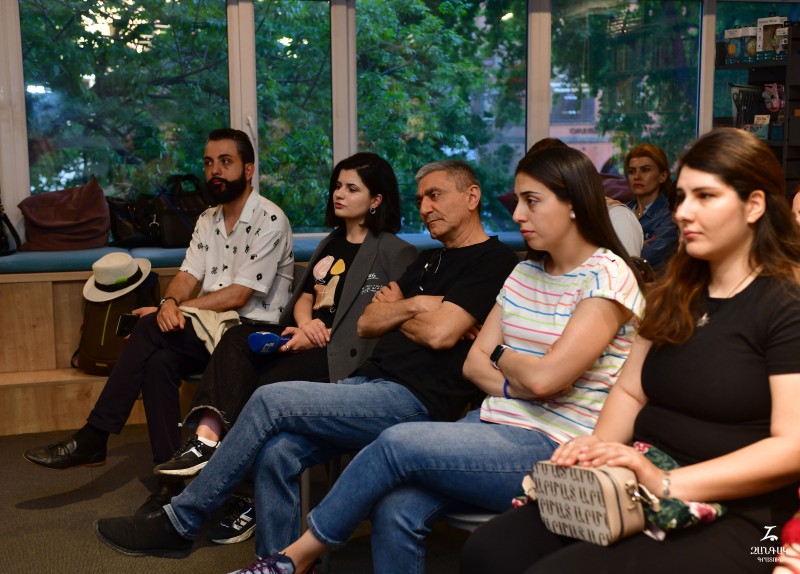
For Istanbul-based Armenian businessman Tigran Altun, the annual recurrence of such statements by the President of Turkey every April 24 underscores Turkey's steadfast refusal to acknowledge the Armenian Genocide, let alone contemplate its recognition. "It has been a century, yet this denialist stance persists unabated. There is no expectation whatsoever that Turkey will acknowledge the Armenian Genocide." As a citizen of Turkey, Altun expresses dissatisfaction with Erdogan, but as a member of the Armenian minority residing in Turkey, he acknowledges Erdogan as the best option available. Altun perceives today's opposition figures in Turkey as even more nationalist and authoritarian than Erdogan, emphasizing Erdogan's religious orientation as a distinguishing factor. Reflecting on the past, Altun notes that discussing Armenian history and the Genocide was a taboo subject 15-20 years ago. He credits the recent relaxation of restrictions on discussing such sensitive topics to either Erdogan's policies or external pressures but acknowledges that in recent years, there has been greater freedom to address Armenian concerns openly.
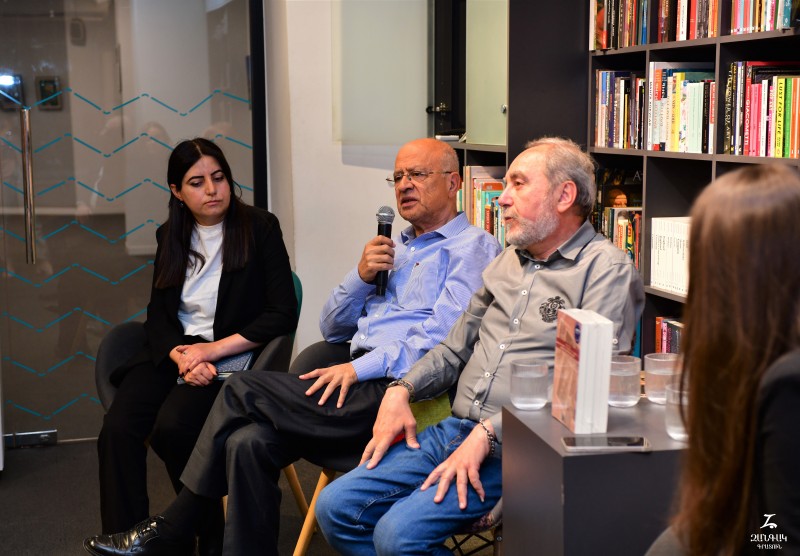
When asked about the experience of living in present-day Istanbul, particularly in streets bearing names like Taleat and Enver, and more broadly, what it means to be Armenian in Turkey within the context of genetic traumatic memory, the Istanbul-Armenian businessman responded by highlighting the differing perspectives of native Istanbul-Armenians and those who migrated to Istanbul. He noted that native Armenians of the city did not witness the Genocide or subsequent migration, whereas Armenians who relocated to Istanbul experienced firsthand the upheaval of migration and the trauma of massacres. "Armenianness in the city is not deeply influenced by the Genocide. They acknowledge historical events but may not be familiar with figures like Talaat or Soghomon Tehleryan." Unlike their counterparts, Istanbul Armenians may not question living on streets named after controversial figures like Talaat Pasha. The businessman emphasized the importance of learning from history but cautioned against being consumed by it, suggesting that the focus should be on preserving the present and contemplating the future of the country.
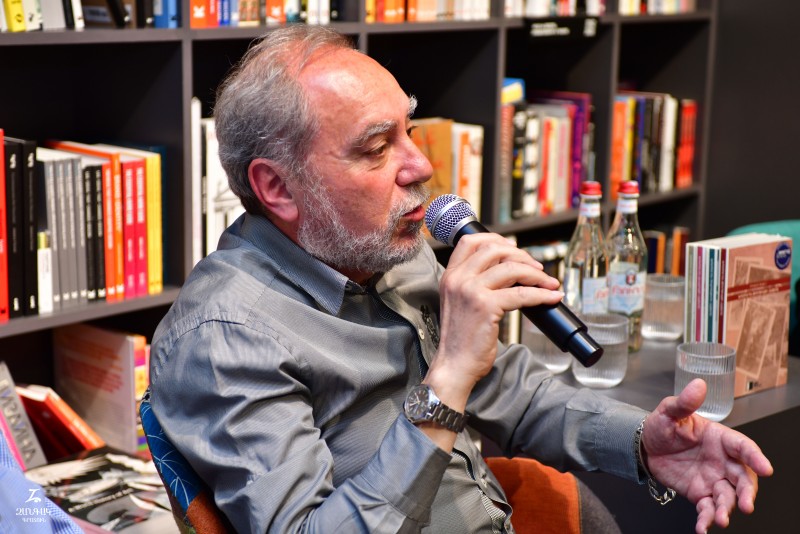
Tiran Lokmagyozyan challenged the viewpoint of the Istanbul-Armenian businessman, highlighting his own family's longstanding roots in Istanbul. "My family has resided in Istanbul since the early 1800s, spanning several generations. I strongly disagree with the notion that Istanbul-Armenians were shielded from the Genocide. What about the Abdul-Hamidian pogroms? My grandmother often recounted how she witnessed corpses being transported via horse-drawn carriages and narrowly escaped danger by seeking refuge in a barn. In just one night, 250 intellectuals were abducted from Istanbul, and this pattern continued night after night. By conservative estimates, the total number of victims ranged from 750 to 1500."
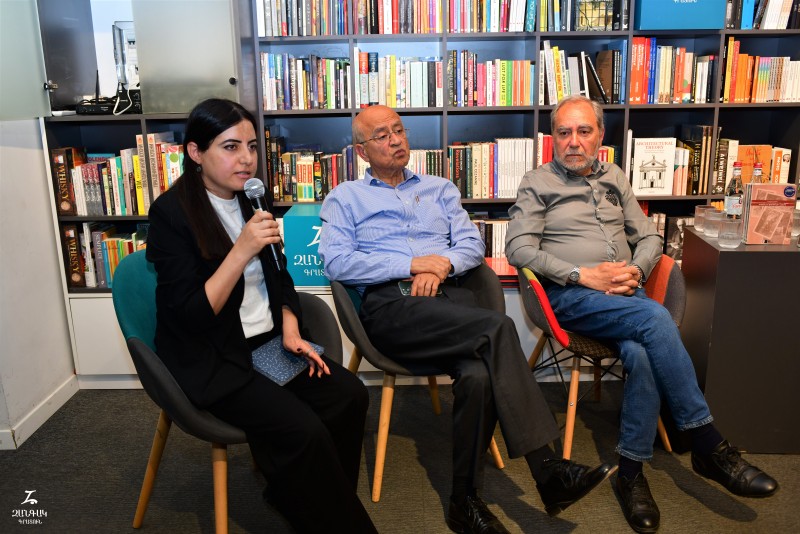
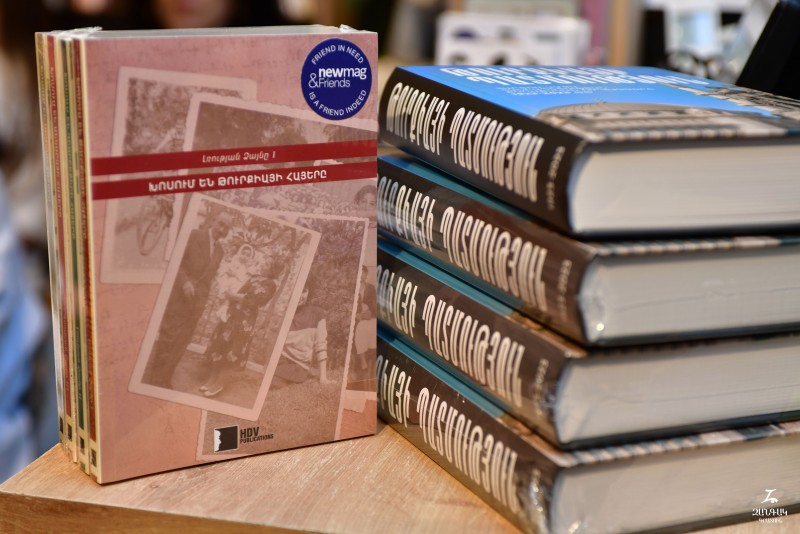
Addressing the exclusive documentary collection of the "Hrant Dink" Foundation, Armenuhi Nikoghosyan, the foundation's project coordinator, articulated one of its core objectives: the establishment of an archive documenting the memories of Armenians. "Since 2011, our foundation has undertaken 'The Voice of Silence' project, aimed at compiling the memories and narratives of Armenians in Turkey into published works. These accounts are captured through oral history interviews, a distinctive method that ensures the preservation and transmission of these memories to future generations. They chronicle the experiences of Armenians as they persevered in Turkey post-Genocide, detailing the challenges they encountered and their ongoing efforts to uphold their identity, faith, culture, and language."
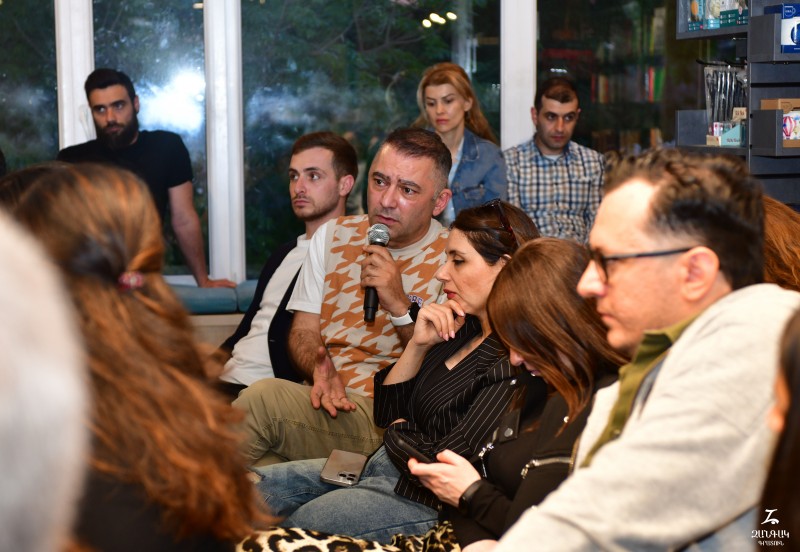
The four-volume series presents the stories of forcibly converted Armenians. In addition to these 4 books, the "Hrant Dink" foundation has published 3 more works, which have not yet been translated into Armenian.
Read also

Winterfest to feature David Georgyan’s sci-fi action novel Impedance (trailer)

At Winterfest 2026, Newmag will present Marianna Hakobyan’s “Don’t Change the Names” (trailer)

Closing and Award Ceremony of the “Sprout in Armenian – 2025” Competition at Newmag Winterfest

“I hope my story will inspire many and help them keep believing and dreaming.” Henrikh Mkhitaryan’s welcoming speech to Armenian fans (video)


